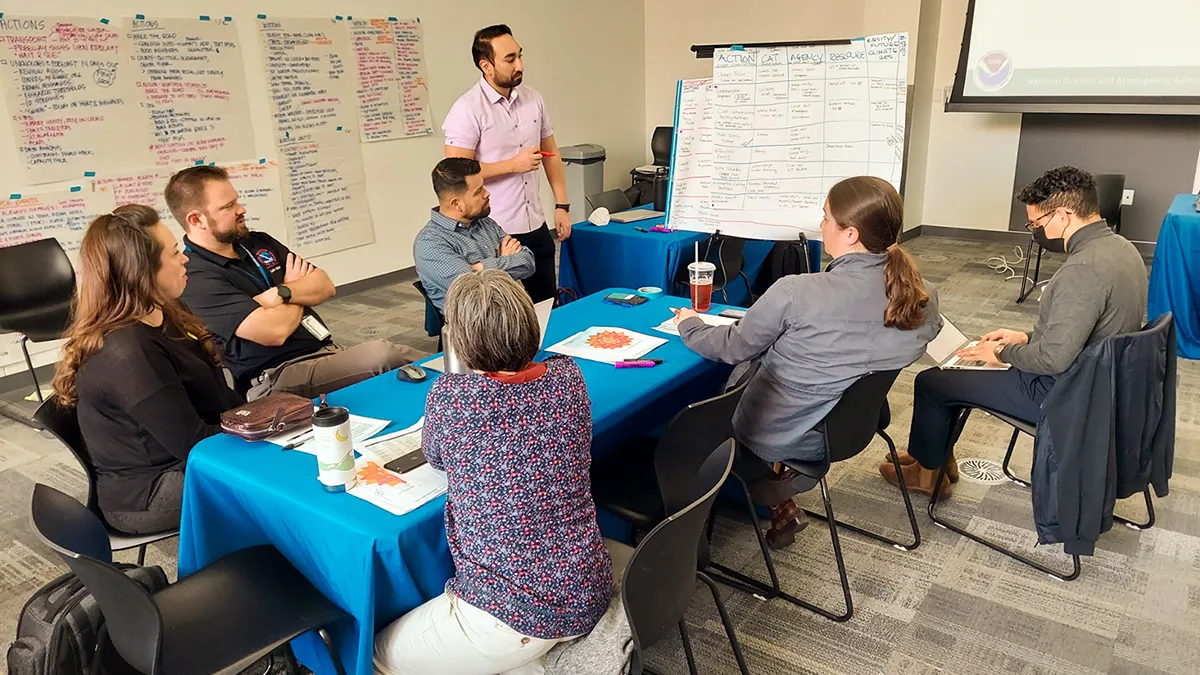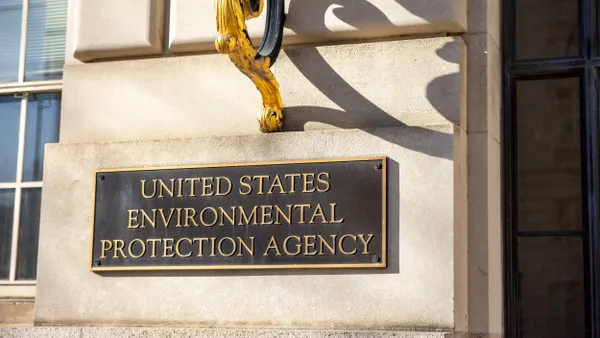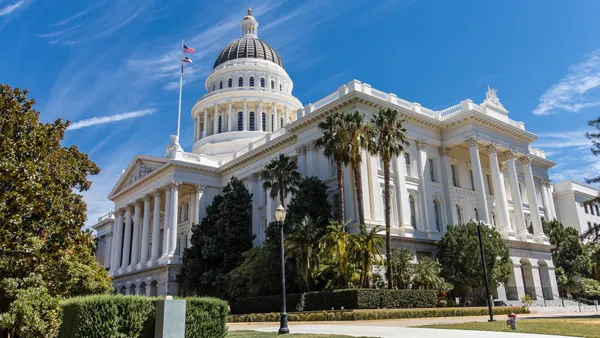Dive Brief:
- The first-ever national heat strategy was released on Aug. 14 by the interagency National Integrated Heat Health Information System.
- The 37-page document outlines how federal agencies will use science-based strategies and expand resources for communities to address the rising dangers of extreme heat.
- State, local, tribal and territorial governments can also now vie for prizes of at least $20,000 each through a challenge launched by the Department of Commerce and National Oceanic and Atmospheric Administration. It requires competitors to develop situation manuals used to run simulated “tabletop” heat emergency drills.
Dive Insight:
For decades before 2020, heat-related deaths and illnesses in the U.S. were steady or declining, according to the national heat strategy. That’s no longer the case, as record-breaking temperatures slam communities. In the last four years, heat-related illnesses and deaths have risen dramatically, the national heat strategy says. Some people are more vulnerable than others, including older adults, people experiencing homelessness, outdoor workers and people with chronic medical conditions.
Meanwhile, experts have warned that heat policies and protections lag far behind those for other natural disasters. Communities suffering in the heat also say they need more money to address the rising impacts. Many state and local officials and advocacy groups have recently called on the Federal Emergency Management Agency to explicitly include extreme heat in its definition of a major disaster eligible for federal dollars.
The Biden administration has attempted to make some strides on the extreme heat front. In April, it gave communities nationwide access to an experimental online tool that forecasts how heat on a given day poses a risk to public health. A month later, the administration announced that it’s spending over $4.5 million to establish research centers on heat monitoring and resilience.
The national heat strategy further indicates federal officials’ desire to catch up to the dangers posed by high temperatures. The four goals outlined in the strategy are:
- Improving communication, outreach and education around extreme heat. That includes engaging with state and local governments and increasing educational and knowledge-sharing opportunities for communities.
- Improving the scientific understanding of extreme heat and developing science-based solutions. Such work will include expanding current data collection and monitoring.
- Implementing and supporting strategies to address extreme heat dangers. This goal will include establishing public early warning systems for heat and providing resources to communities for heat-related work.
- Continuing work to make the NIHHIS the primary federal source for heat-related health information and solutions.
Federal agencies have distinct roles in supporting local governments and others in managing extreme heat, the strategy document says. For example, the Transportation Department can help make sure transportation infrastructure functions during extreme heat, while the U.S. Census Bureau can provide demographic data that shows which populations are most impacted by extreme heat.
The new heat strategy “will ensure that the federal family is working in lockstep” on heat resilience, FEMA Administrator Deanne Criswell said in a statement.
Designing a heat tabletop exercise
The Heat Tabletop Exercise Design Challenge will dole out a total of $200,000 to up to 10 winning state, local, tribal or territorial governments, which must collaborate with community-based organizations. Applications are due by Nov. 15.
During tabletop exercises, a facilitator guides exercise participants through an emergency scenario — but in the confines of a conference room, instead of the real world. A key part of such exercises is the situation manual, the deliverable for the federal competition, according to NIHHIS. The full process of preparing for a tabletop exercise can take six to nine months and can help communities critically evaluate their emergency response plans and address gaps.
Last fiscal year, NIHHIS helped local leaders run heat tabletop exercises in Las Vegas, Phoenix, Miami and Charleston, South Carolina. “This prize challenge is the next step in making our support more accessible to a greater number of communities,” NOAA Administrator Rick Spinrad said in a statement.











